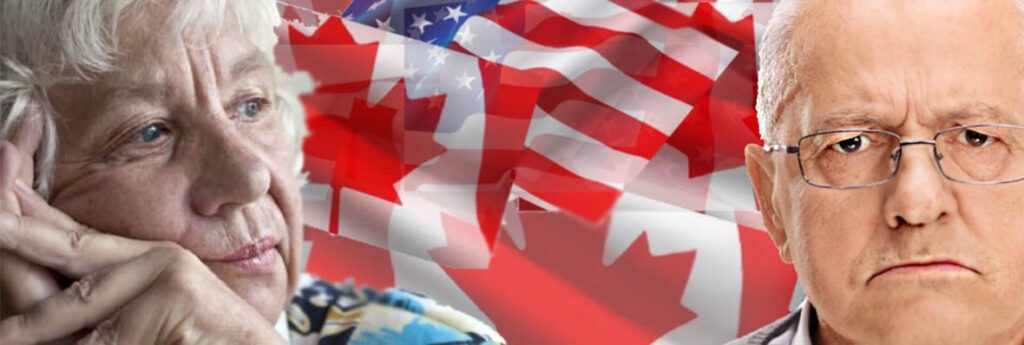Canadians – and some Americans – are still looking for answers after the White House indicated yesterday that it will soon begin easing entry rules for foreign visitors. That’s a step forward, but the Canada-US border closure has been extended by another month to Oct. 21. What is still not known is when it will open again to Canadians for non-essential travel.
The news, or lack of it, is particularly disheartening to Canadian snowbirds who have no clearer picture of when they will be able to pack up and drive south for the winter.
On Monday, the White House did say that beginning in November, it will ease foreign travel restrictions to the US, allowing foreigners in if they have proof of vaccination and a negative COVID-19 test and not requiring them to quarantine.
The new rules will replace a hodgepodge of restrictions that had barred non-citizens who had been in Europe, much of Asia, and certain other countries in the prior 14 days from entering the US.
Unvaccinated American citizens will need to be tested within a day before returning to the US, as well as after they arrive home and airlines will be required to collect contact information from international travellers to facilitate contact tracing,
How the new policies will affect Canadians, who, while restricted at the land border, are already allowed to enter the US by air with proof of a negative antigen test is not clear. Nor is whether new testing protocols will require more costly and cumbersome PCR tests.
It was also not immediately indicated which vaccines would be acceptable under the US system and whether those unapproved in the US could be used. Notably for Canadians, the Oxford-AstraZeneca vaccine, which has been approved and widely used in this country has not been approved in the US.
New York congressman Brian Higgins, long one of the most vocal Capitol Hill critics of travel restrictions with Canada, said it’s long past time the US began allowing recreational visits from Canada.
“It is welcome news that the White House is making progress on reciprocating international public health measures to protect air travellers,” Higgins said in a statement. “Yet it is inexplicable that no announcement on easing travel restrictions at land ports of entry is being made today since the livelihoods of communities across the northern border depend on cross-border commerce.”
The White House says the forthcoming new rules will apply to air travel and require passengers to show proof of vaccination before boarding, as well as a negative COVID-19 test no more than three days old.
In that respect, they are similar to the rules Canada began imposing over the summer – initially on returning Canadians, then on US citizens and permanent residents, then finally on all foreign nationals.
Britain welcomed the US announcement that it is lifting quarantine requirements for vaccinated international travellers with Prime Minister Boris Johnson tweeting that he was “delighted” by the news. He said: “It’s a fantastic boost for business and trade, and great that family and friends on both sides of the pond can be reunited once again.”
The announcement was met with cheers by the air travel industry, which has lost significant revenues from the pandemic-related declines in international travel.
“(The) announcement is a major step forward,” said IATA Director General Willie Walsh. “Allowing access to the US for those vaccinated will open travel to the US for many who have been locked out for the past 18 months… This announcement marks a key shift in managing the risks of COVID-19 from blanket considerations at the national level to assessment of individual risk. The next challenge is finding a system to manage the risks for travellers who do not have access to vaccinations…”
The US travel industry similarly welcomed the news with US Travel Association President and CEO Roger Dow stating, “This is a major turning point in the management of the virus and will accelerate the recovery of the millions of travel-related jobs that have been lost due to international travel restrictions.”

